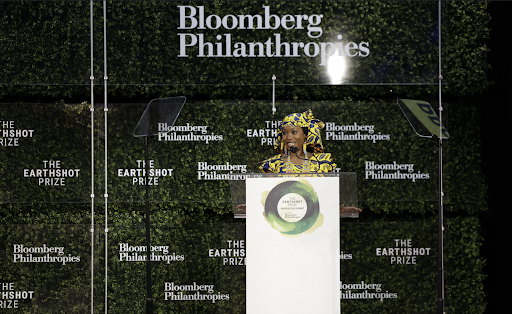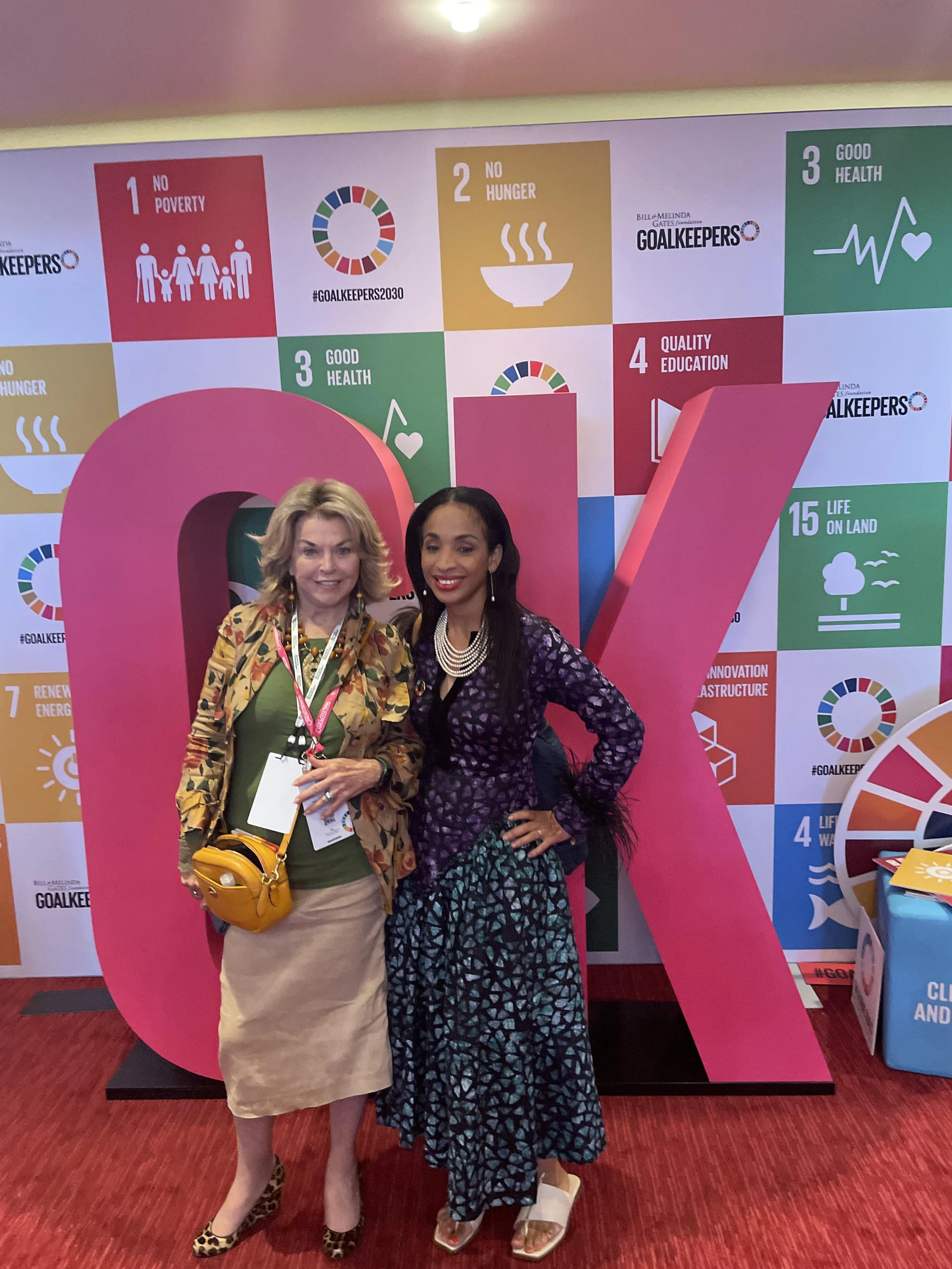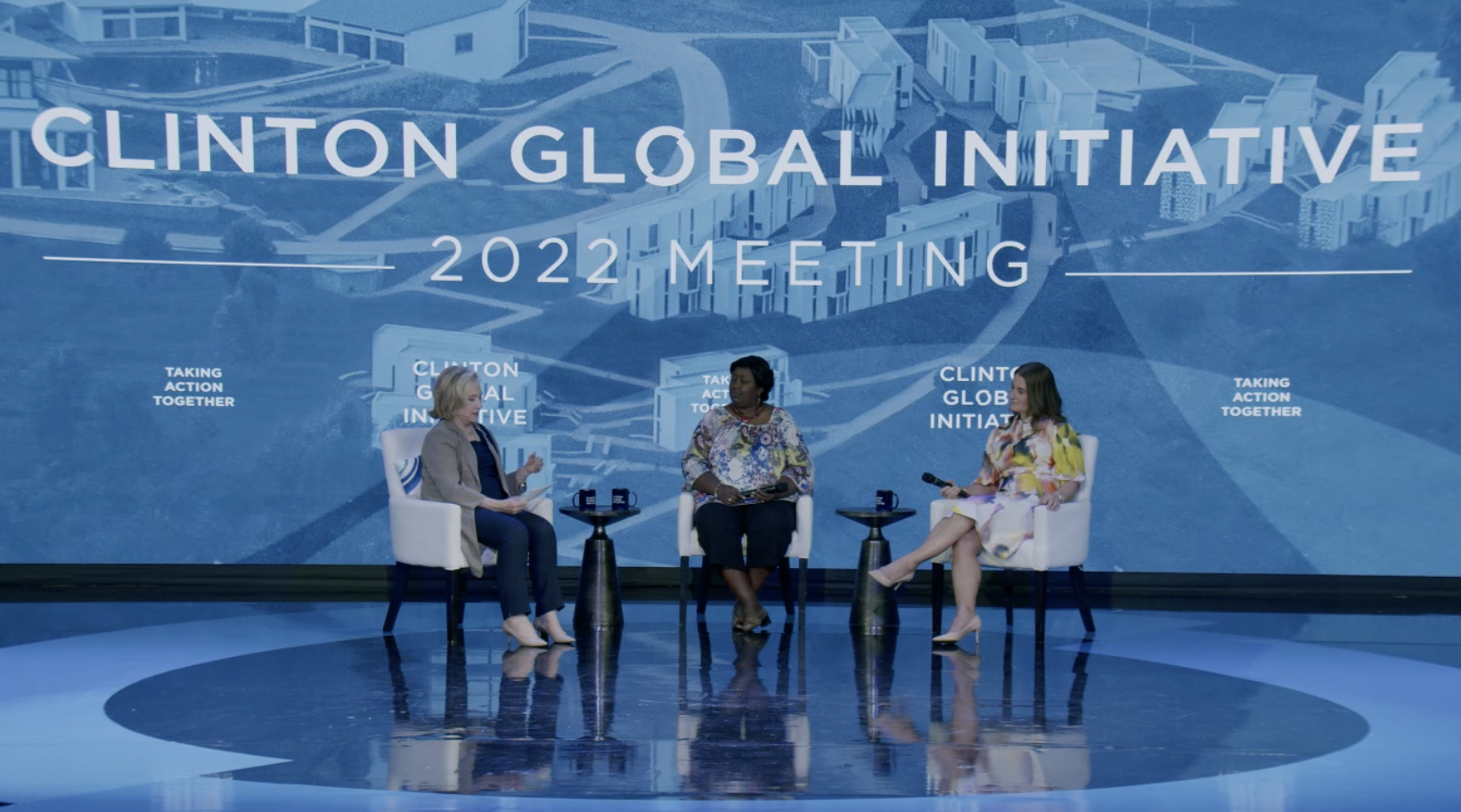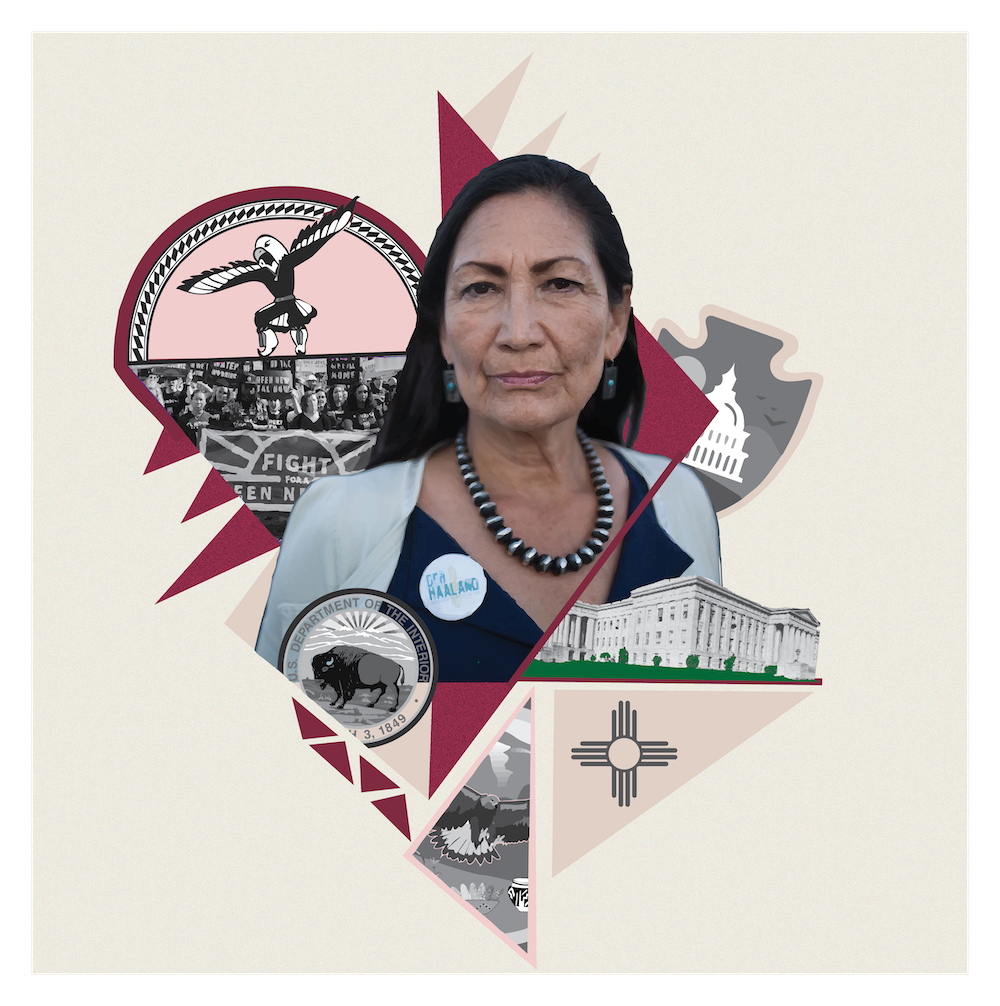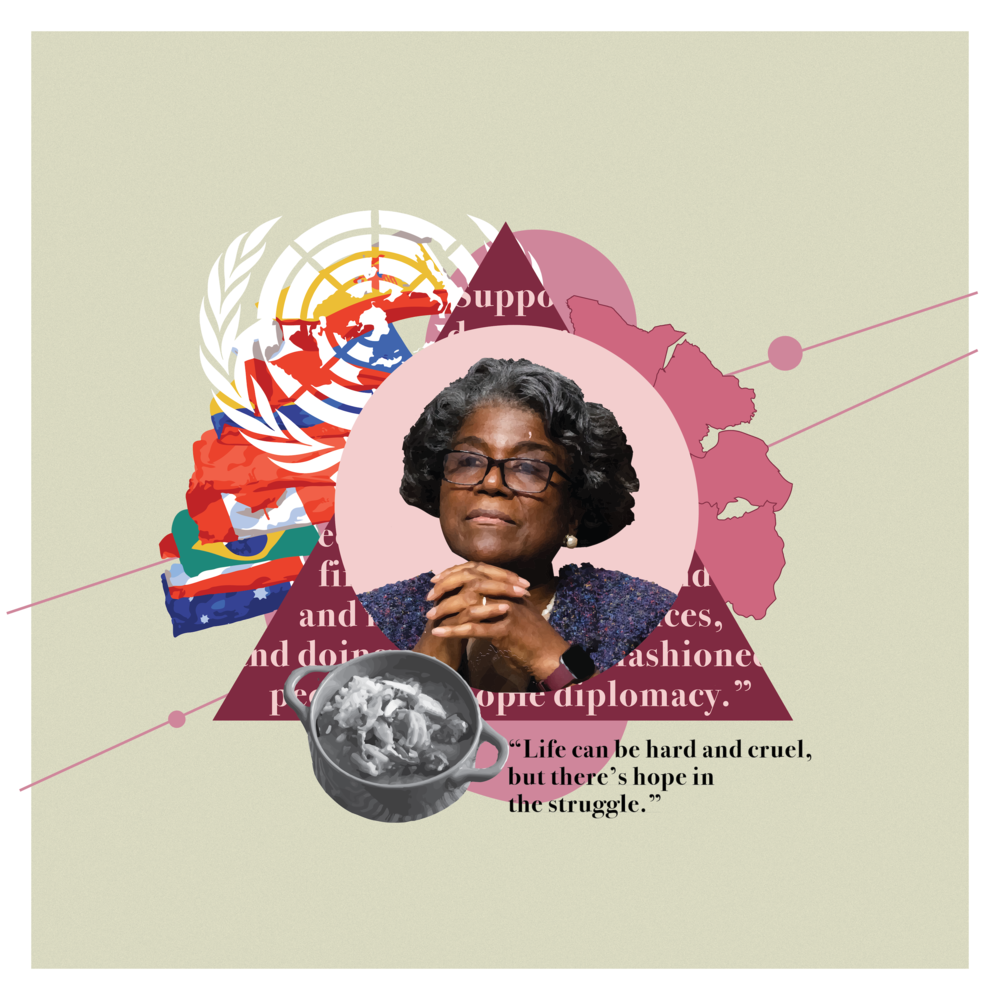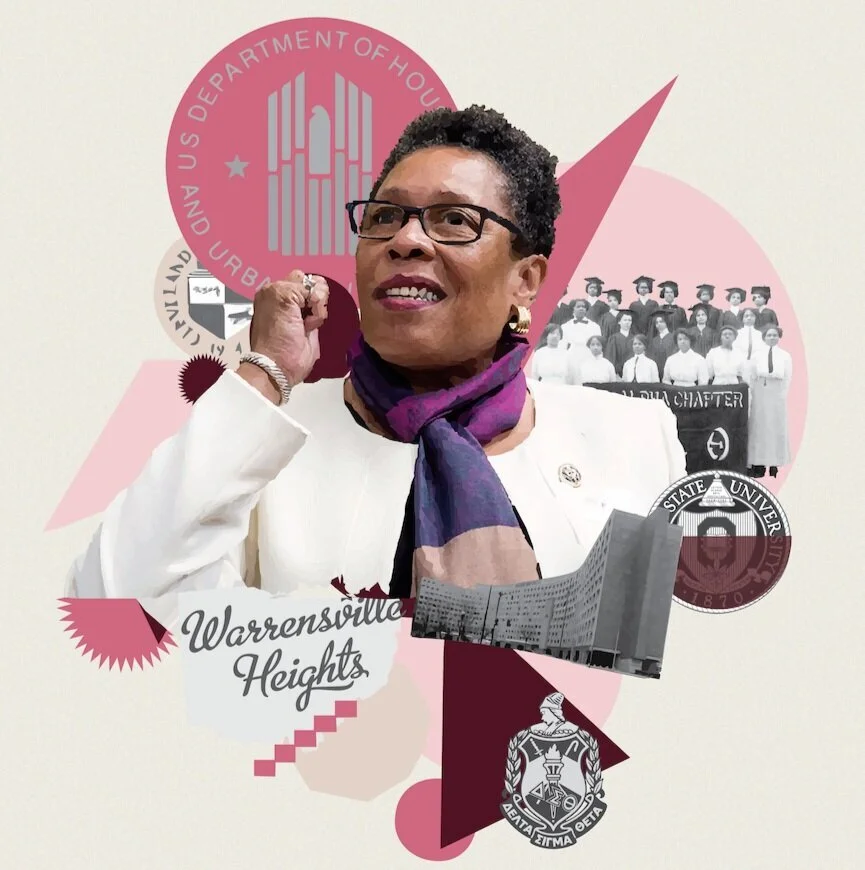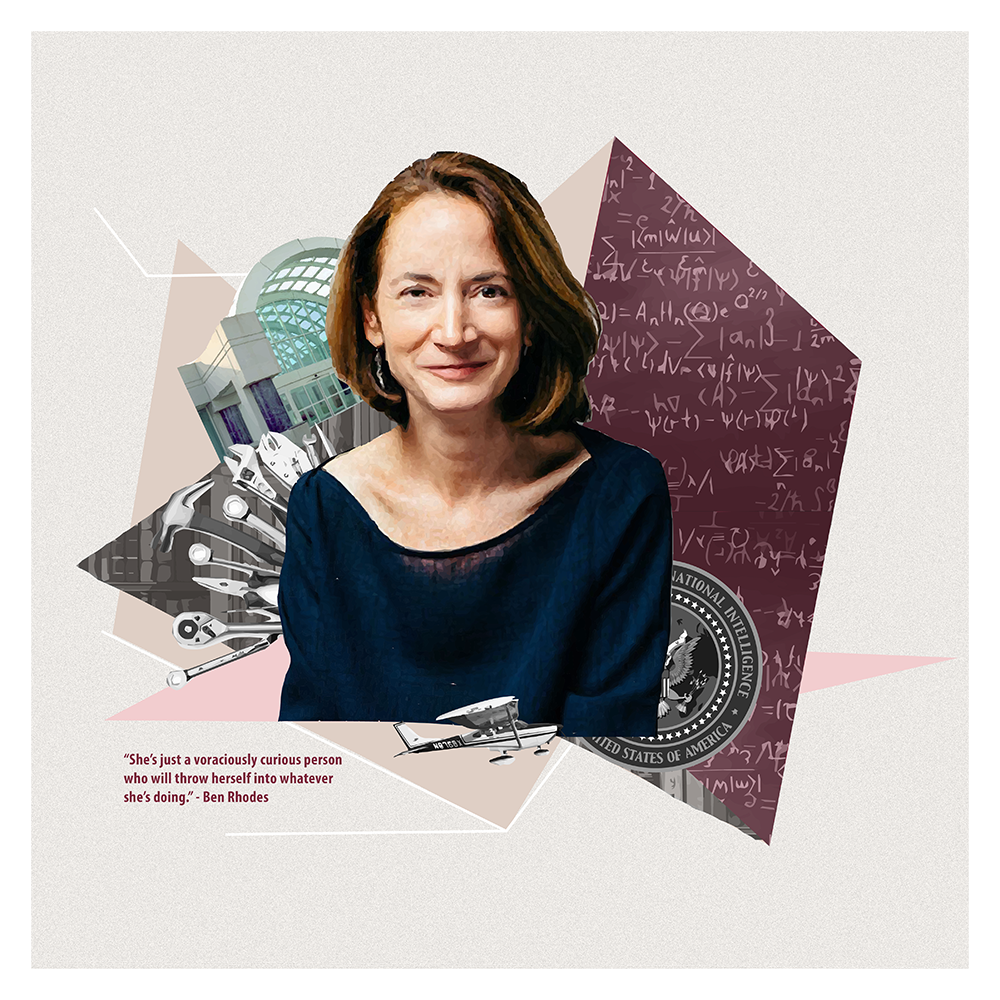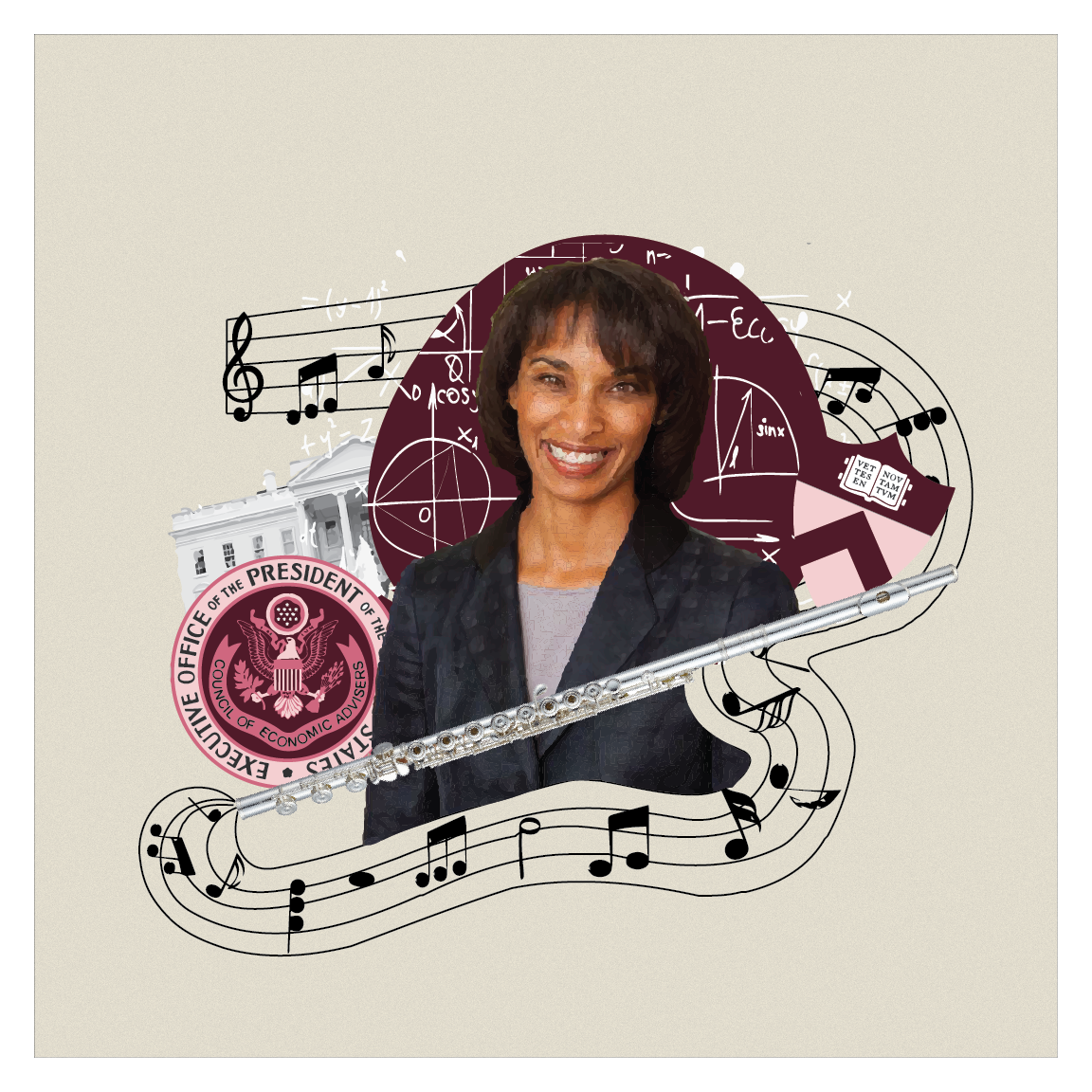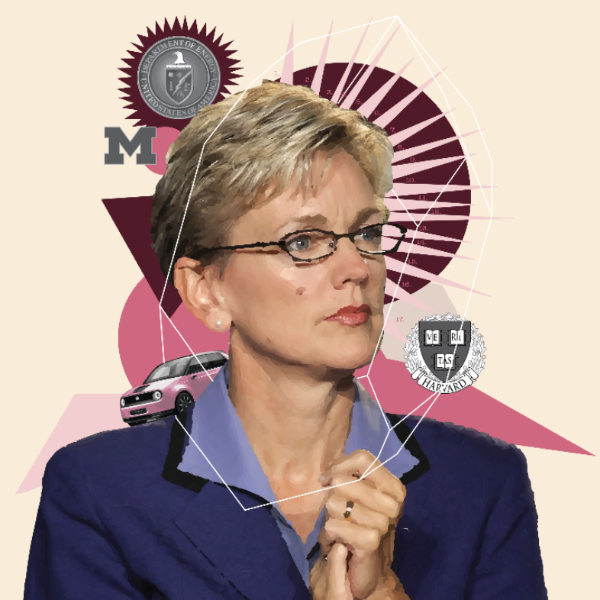In his remarks to the annual convening of the United Nations General Assembly, UN Secretary General António Guterres made the challenges clear, once again, saying that the world is hurtling towards...
“A future of permanent and ubiquitous climate chaos on an unimaginable scale: Devastating loss of life, enormous human suffering, and massive damage to infrastructure and livelihoods.”
While there is ample evidence that the horrific future he envisions sometimes seems inevitable — with ever present extreme weather-related catastrophes happening around the world — I was part of a contingent of women leaders who went to NYC last week with a proposal to shift the narrative of fear to one of hope and radical optimism. Our proposal is inspired by the audacious possibility, put forward by indigenous leader Jade Begay, who challenged us during our Connected Women Leaders forum in Bellagio last April to imagine "that our best times may be ahead of us!"
I believe that this could be true, and that the movement towards the "best times" can and will be led by the world’s women. My experiences last week strengthened my conviction and my commitment.
The week began for me with the Africa-Europe Foundation (AEF) Women Leaders Network. Taking place at the Permanent Mission of the Republic of Ireland and led by that country’s first woman president, Mary Robinson, the in-person meeting took up the challenges to find the balance between mitigation of fossil fuel consumption in the developed world and the great need to fund adaptation and loss and damage for a just transition for those parts of the world most impacted by the climate crisis.
Mary, along with her co-lead, former Liberian President Ellen Sirleaf Johnson, has assembled an impressive group of women leaders, committed to catalyzing collaborative actions as part of a strengthened Africa-Europe partnership in the face of the global climate emergency. Being neither European nor African, I have had the great privilege of being invited to participate as an "official observer" and I have learned so much from these forums.
Speaking at the event, United Nations Deputy Secretary-General Amina Mohammed underlined the urgency of collaborative action involving donors, multinational development banks and private finance. “I welcome the Africa-Europe Foundation’s focused discussion on doubling adaptation finance, and loss and damage, and hope this work can help build momentum to COP27.” With Mary Robinson’s steady leadership and the smart, strategic leaders in this group, I have witnessed the possibilities for the alliances and partnerships that are necessary to shape a just transition to a better future for Europe, Africa and the world.
That same morning, my Connected Women Leaders (CWL) cofounders, Hafsat Abiola and Ronda Carnegie, and I convened a climate justice roundtable, led again by my climate mentor, Mary Robinson. CWL's focus during Climate Week (and every week) is optimizing the power of networks represented in our community of leaders to make climate justice personal and a priority in all of our individual and collective work.
Nearly 100 women leaders joined us for a day of brainstorming ways for the environmental organizations represented in the room to work more closely together on shaping a new global campaign that will link and strengthen everyone’s current climate justice initiatives. Also among us were women leaders whose current priorities aren’t climate, but who are committed to join together to identify and implement just solutions to the climate crisis, to end short-term thinking and planning, and to realize, as one business leader put it, “we can’t do business on a dead planet!”
To accelerate that work, we put forward a proposed global climate justice campaign, codenamed Project Dandelion, to be led by women leaders everywhere to elevate the urgency of a seven-year timeline to sustain a habitable planet for everyone.
It may seem impossible, but we have done the seemingly impossible before.
When President Kennedy challenged the US to go to the Moon, there was no NASA and no clear plan about how to do what seemed impossible. With a team of scientists (whose average age was 26!), we went to the moon and back, just 8 years after the original challenge.
When a global pandemic threatened to change forever the ways we lived and worked, scientists focused on creating vaccines and got them to the public in just 18 months.
These are just two examples of focused and urgent responses. There are many more that have inspired our community of global women leaders to take up this challenge of a seven-year timeline to elevate the urgency of actions that individuals, communities, companies and governments must take.
During Climate Week, we took up the opportunities for additional input, ideas, and allies by joining the gatherings of the Gates Foundation Goalkeepers and Prince William’s Earthshot Prize Innovation Summit, where CWL climate activist Hindou Oumarou Ibrahim (left) spoke about conservation work in her home country of Chad. The Gates Goalkeepers are a community of change makers who are advancing the UN Sustainable Development Goals — from grassroots to global, these leaders represent an eclectic range of cultures, professions, and interests. Here, too, Connected Women Leaders was represented by the Nigerian entrepreneur Ndidi Okonkwo Nwuneli who led a session (right) on the connections between food ecosystems and climate justice.
The Clinton Global Initiative (CGI) also returned this year for a gathering that featured many sessions on the interconnections and impact of the War on Ukraine on climate, especially the fossil fuel and energy sector, including a powerful conversation between former President Bill Clinton and Ukraine President Volodymyr Zelenskyy. Another highlight for me was a conversation between former Secretary of State Hillary Clinton, Melinda Gates and Dr. Agnes Binagwaho who came together on the CGI platform to announce a new $50M commitment to provide women equal access to medical careers and opportunities to lead through the Paul E. Farmer Scholarship Fund.
I emerged from this week with yes, sore feet — as Manhattan traffic comes almost to a standstill during the UN General Assembly with world leaders and their security details, and walking is necessary (good thing sneakers are in style!) — but I also came away more deeply convinced than ever that women leaders (and our male allies) must make climate personal, must make it a priority, talking about it at every opportunity, and must envision the future we want and move urgently towards it. We must also get angry with those who are not recognizing and responding to the emergency, and use that energy to do something every day that moves us forward towards a future that could be our best times.
Let’s do this! I will be letting you know exactly how you can get involved in Project Dandelion in future newsletters.
For now, consider the dandelion flower, which grows on every continent, seeding from one flower to the next, far and wide. That’s how I am envisioning the solutions to this climate emergency... women leaders everywhere "seeding" the changes needed to sustain a habitable planet for everyone.
Onward!
-Pat


